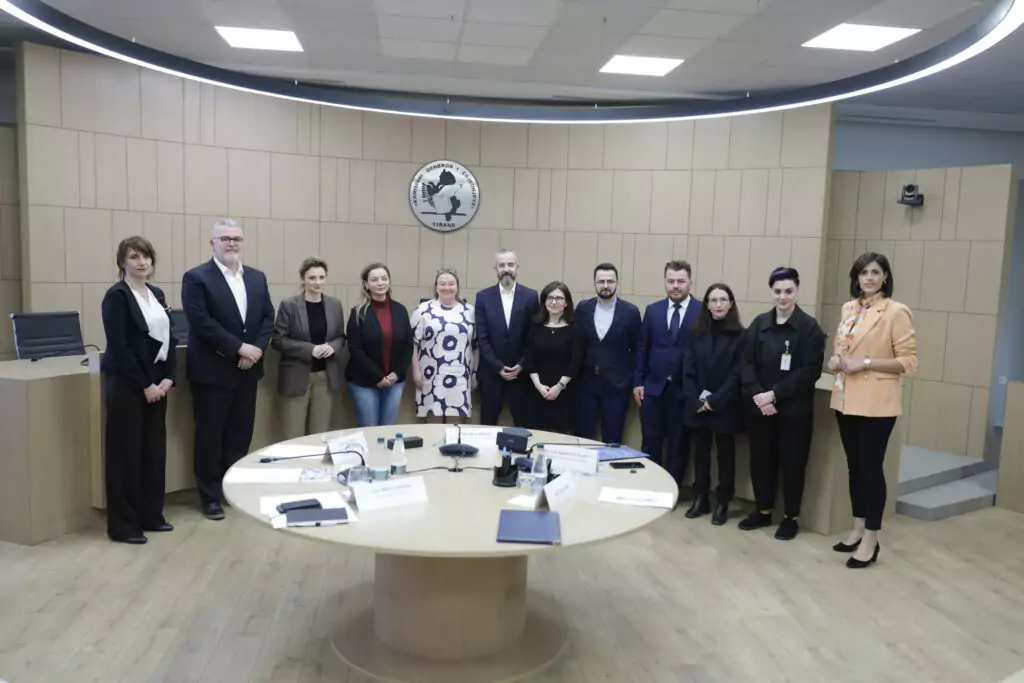By Sebi Alla – ‘Slacker men’; ‘hairy people’; ‘click on Edi Rama nude‘; Has she split from her husband? Then pick him, because she’s one of us’; and ‘Anyone chasing after the swamp must be out of their mind and politically autistic‘. These phrases were frequently used by Prime Minister Edi Rama during the election campaign, despite criticism. During this prolonged outburst, Prime Minister Edi Rama made several statements that have been widely regarded as offensive, bullying, gender-discriminatory, stigmatizing toward people with disabilities, and sexist. ‘These declarations and tactics risk fueling polarization and hostility among voters’, says Edlira Çepani, director of the organization ‘Equality in Decision Making’ in a statement to Faktoje.al.
Code of Ethics

On March 25 of this year, six political parties, including the Socialist Party (PS) and the Democratic Party (PD), represented by Toni Gogu and Albana Vokshi respectively, signed the Electoral Campaign Code of Ethics. This Code was developed by the Central Election Commission (CEC) in cooperation with the National Democratic Institute (NDI), the International Institute for Democracy and Electoral Assistance (International IDEA), and the Rule of Law Centre at the University of Helsinki. According to Article 3 of the Code, parties commit to: ‘Encourage an inclusive political discourse, participation, and contribution to secure electoral processes by:
- refraining from producing, using, or disseminating statements and prejudices that discriminate against groups based on gender, racial or ethnic origin, religion, belief, disability, age, or sexual orientation’.
Rising verbal aggression
Despite these signed commitments, the campaign has escalated in verbal hostility. Early on, Rama made light of the phrase ‘men are slacker/lazy’ (‘çyryk’ in Albanian, which also implies mental deficiency), broadly applying it to all men who follow what he called the ‘swamp owl’, a nickname for PD leader Sali Berisha. ‘In reaction to these ethically questionable remarks, PD leader Sali Berisha called for ‘ethics’ from his opponent, yet he himself resorted to harsh personal attacks, saying, You wouldn’t have passed Bualli Pass without being castrated‘. As the exchange of aggressive rhetoric continued, Prime Minister Rama made a serious political misstep by stigmatizing people on the autism spectrum, along with their families, when he said: ‘Anyone who follows the swamp is politically autistic’.

Apology
On Tuesday morning, and again late that evening, the Prime Minister addressed the public after being made aware of the many reactions from citizens, especially parents of children with autism. He apologized for the term he had used. ‘Completely unintentionally, today I hurt autistic children and offended their parents by referring to ‘political autism.’ It was a mistake, but I had to make it and then learn that for years this term has been inappropriate, and rightfully so’, Rama stated in a video message.
Response
‘I will not stay silent on behalf of my son… When I hear a leader use the word ‘autistic’ as an insult, I feel pain, anger, and shame. Not for myself, but for a society that still tolerates language that demeans the most vulnerable among us. This is not just a ‘rhetorical slip.’ It is outright disrespect’, wrote Brixhida Muça (Masha), mother of a son on the autism spectrum, on social media. Many other parents also voiced their strong disapproval in various ways.
Monitoring
‘During our observation of the 2025 election campaign, we identified the frequent use of offensive and unethical language by certain political parties, alongside AI-generated content such as digitally altered images. This trend contributes to the spread of disinformation, breaches ethical standards, and significantly lowers the level of public discourse. Instead of focusing on substantive programmatic debates, the discussion is overshadowed by polarizing rhetoric, which voters do not need’, states Edlira Çepani, head of the organization ‘Equality in Decision-Making’.
Violations
Çepani highlights that these behaviors clearly contravene the Code of Ethics signed by all parties. ‘It is apparent that such conduct violates the Code of Conduct recently adopted by all political parties at the Central Election Commission (CEC). This Code clearly calls for respectful language, gender sensitivity, and the responsibility to conduct a campaign free from hate speech and personal attacks’, she explains. Premto Gogo, leader of the election monitoring group KRIIK Albania, also regards the public comments by some political leaders as breaches of the Code of Ethics, which was endorsed by six political entities, including PS and PD, at the CEC recently.
‘As an organization, we strongly advocated for a Code of Ethics throughout the campaign, but what we see at this point is an open violation’, Gogo told Faktoje.al.
Stalemate
The head of KRIIK Albania points out that although the Code of Ethics, signed by six major political parties, has been openly violated, there is no scope for administrative actions. ‘It is a Code of Ethics that was signed as a commitment by the parties for a peaceful campaign, without demonizing social groups, or using various digital means and especially AI against opponents, but it still remains within the ethical framework’, says Gogo.
The Code
Faktoje.al has learned that initially there was an effort for this Code to have binding enforcement power and that in case of violations ‘administrative measures’ would be imposed, with the Central Election Commission (CEC) playing a key role. However, this initiative was not accepted by the political parties.
AMA out of the ‘game’
Political statements that insult different social groups and categories, as well as stigmatizations, are present in almost every audiovisual media outlet. The Audiovisual Media Authority, which also monitors election campaigns, should ‘oblige’ television stations not to broadcast messages that harm society, promote aggression, or contain elements harmful to minors. In the specific case of ‘political verbal aggression’, AMA seems to have surrendered. Most public statements by political leaders are broadcast live, making it difficult to prevent any statements that violate ethics or to force the media not to air them during live political events.
Conclusion
Given all of the above, the commitment of political parties to use ethical language during the campaign can be categorized as an unfulfilled promise.









